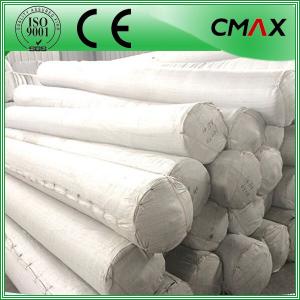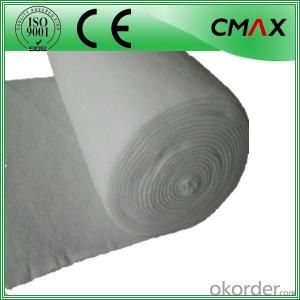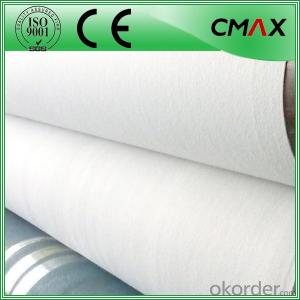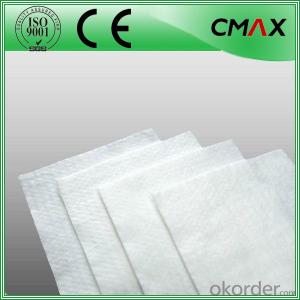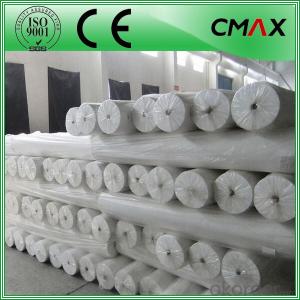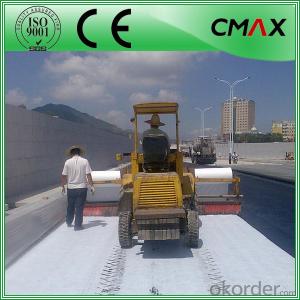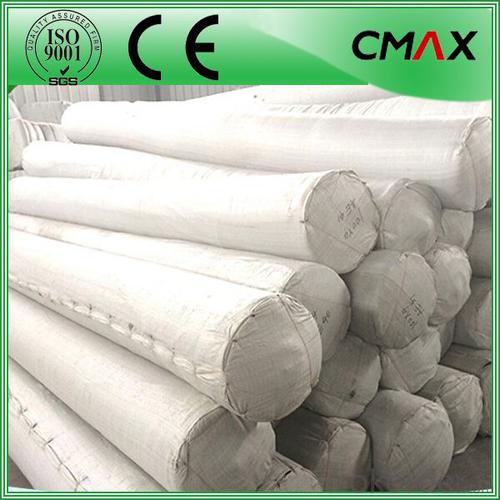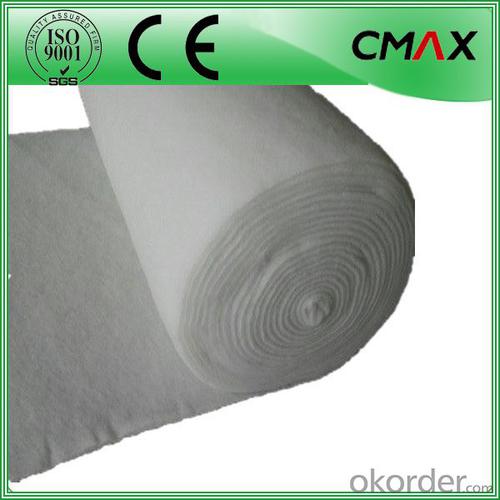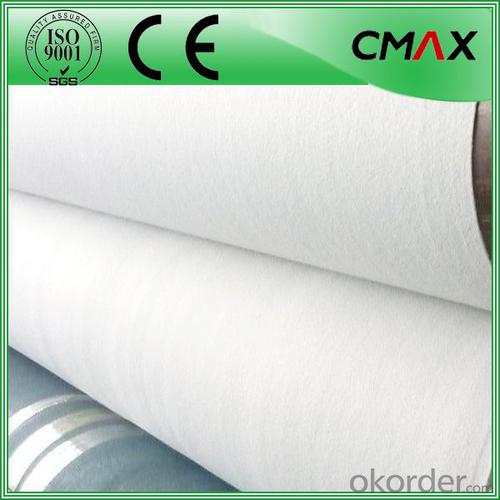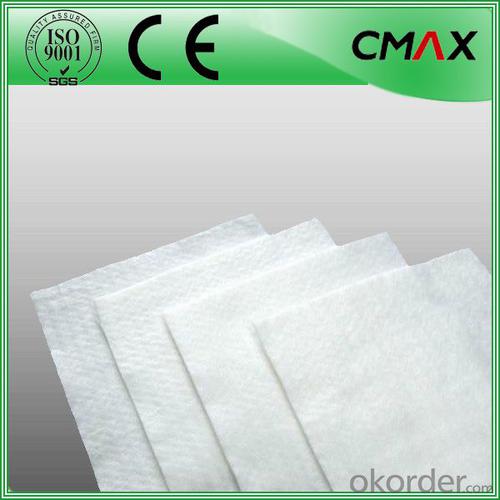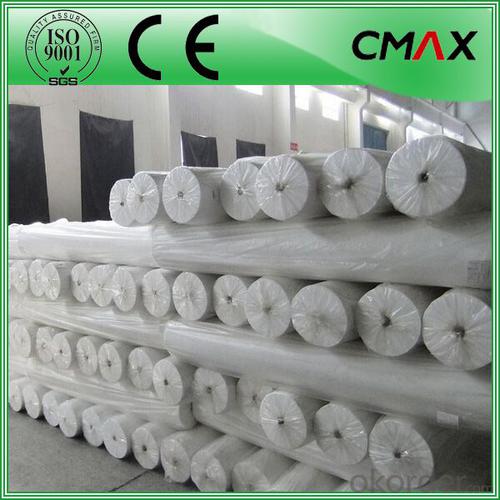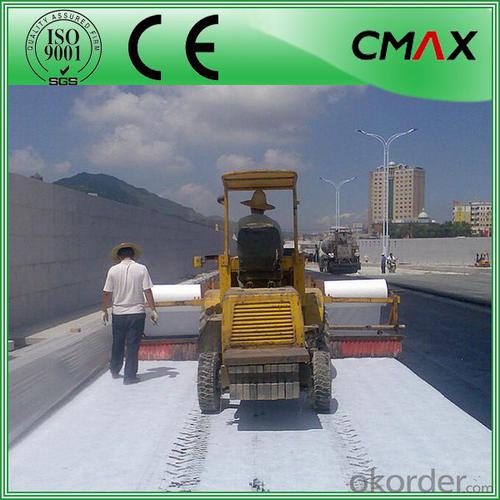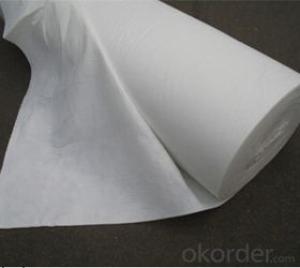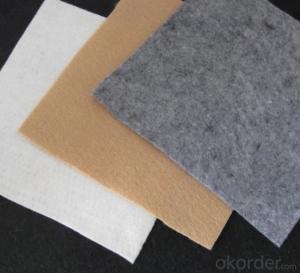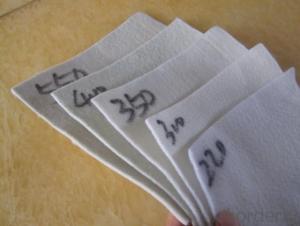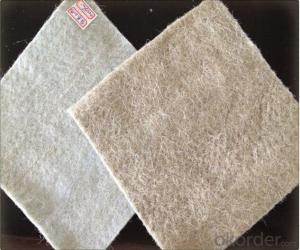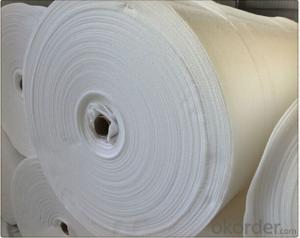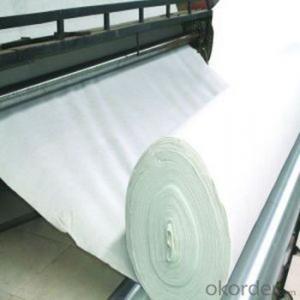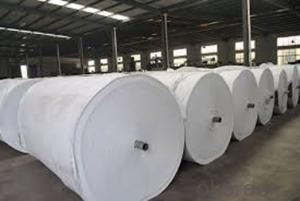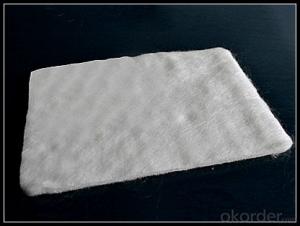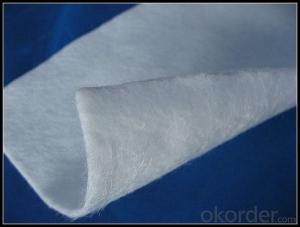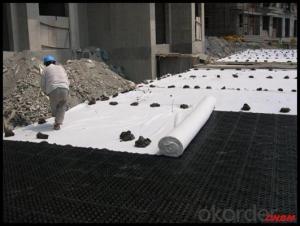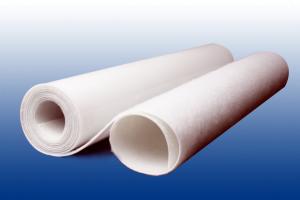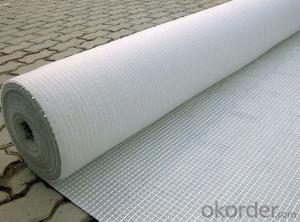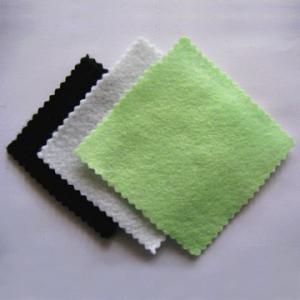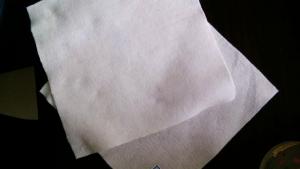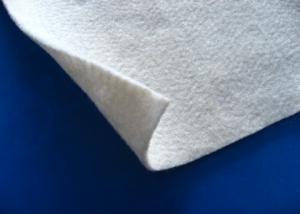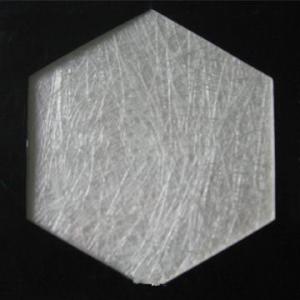Nonwoven Geotextile Fabric Price,Non-woven Geotextile Price
- Loading Port:
- Wenzhou
- Payment Terms:
- TT OR LC
- Min Order Qty:
- 100 roll
- Supply Capability:
- 20000 roll/month
OKorder Service Pledge
OKorder Financial Service
You Might Also Like
Nonwoven Geotextile Fabric Price,Non-woven Geotextile Price
Desciriptions:
Geotextile can avoid the sharps objects damage to pipeline and others buried underground.
Geotextile can reinforce the roadbed,slow down the pavement fracture.
Specifications:
| Weight / Mass | 100gsm - 800gsm |
| width | Within 8 m |
| longth | 50-100m/roll (at request) |
| Material | PP / PET |
| Color | Black , white , grey |
| Certification | CE/ISO9001 |
| Manufacturing method | nonwoven / woven |
Characteristics:
Wide-width rolls
Quality Certified
Proven for use in Main Roads works
Large range to suit the application
Details of our products:
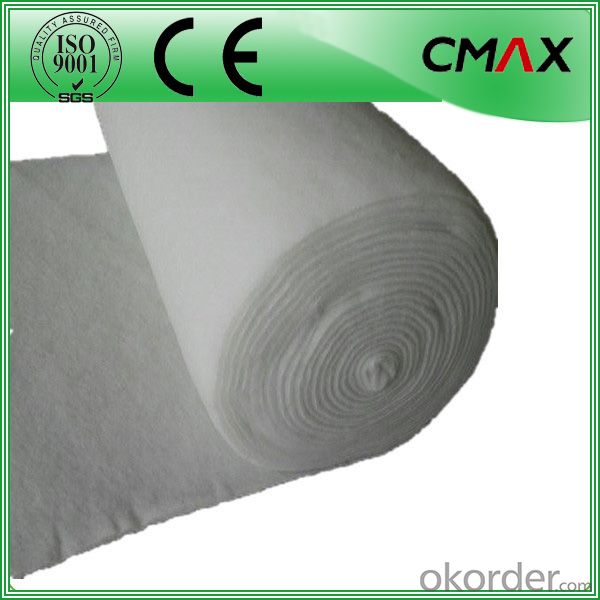
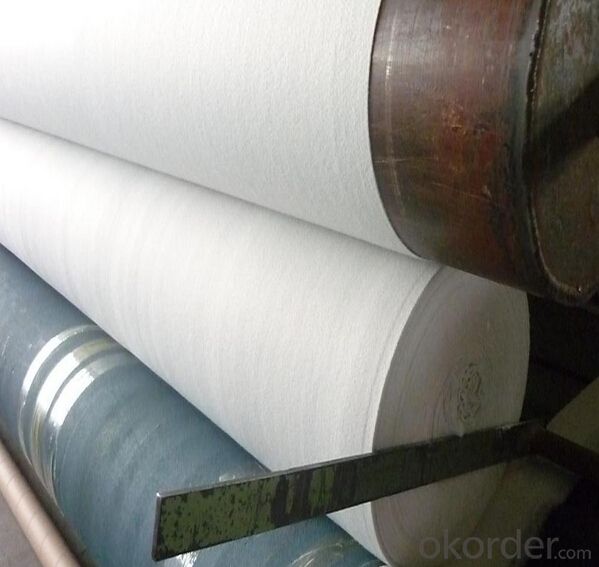
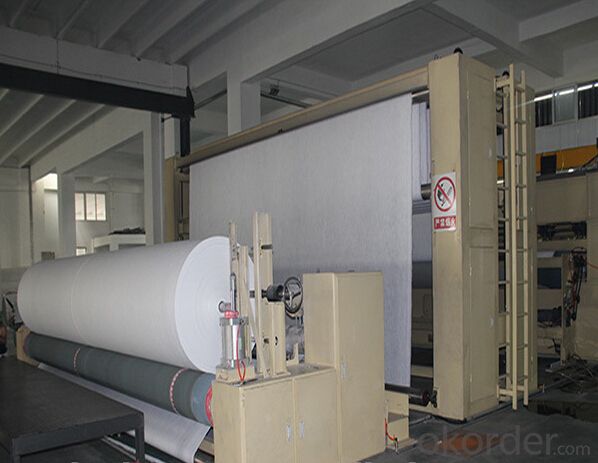
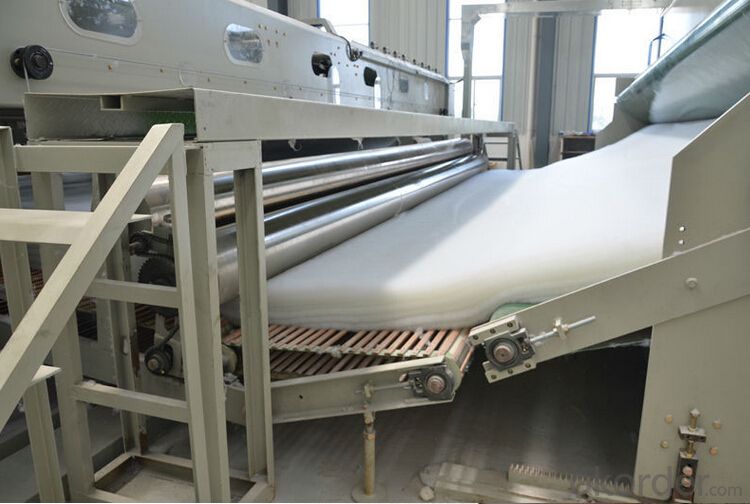
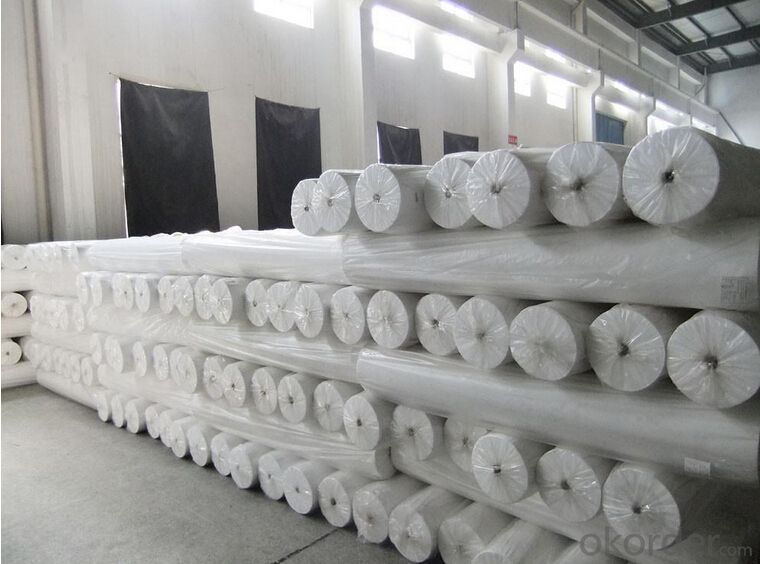
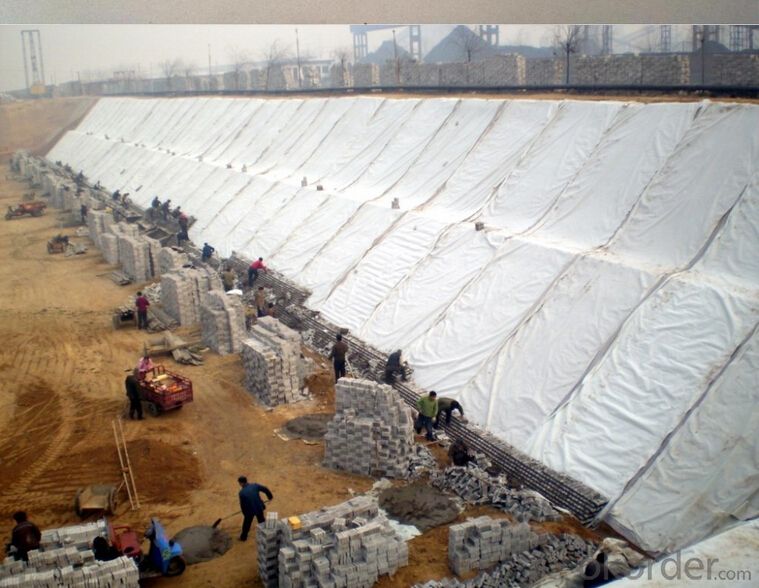
Produce process:
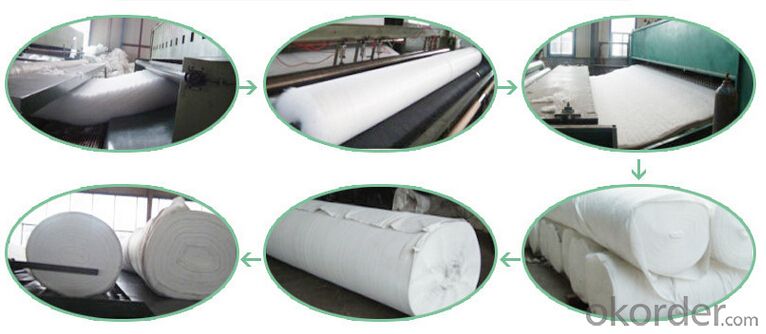
Applications:
1) Filtration :
The filtration layer of the dykes, river canal, seacoast, concrete slope, retaining walls. At the same time of preventing the clay granule from passing, it allows the water and the gas pass through freely.
2) Separation :
The isolation of the railway dregs and the roadbed, roadbed and the soft base, surface of the airdrome and parking lot and the groundsill, different dam materials. It isolates the soil and the gravel of two kinds different granule pathway from the groundsill or other buildings.
3) Adding muscle :
The highway, railway, soil-stone dam, breakwater, airport, backfill soil of retaining wall, slope protection, etc in which distributes the earth stress, prevents the side-displacement of the earth body and improves the earth body stability.
4) Protection :
It prevents the bank from being washed out, protects the bank and the bottom, prevents the water and soil from being washed away.
Packing and shipping:
♦ Packing:in plastic film bag(keep away from moisture) and PP bag or as your customize.
♦ Shipping:By sea or as your customize
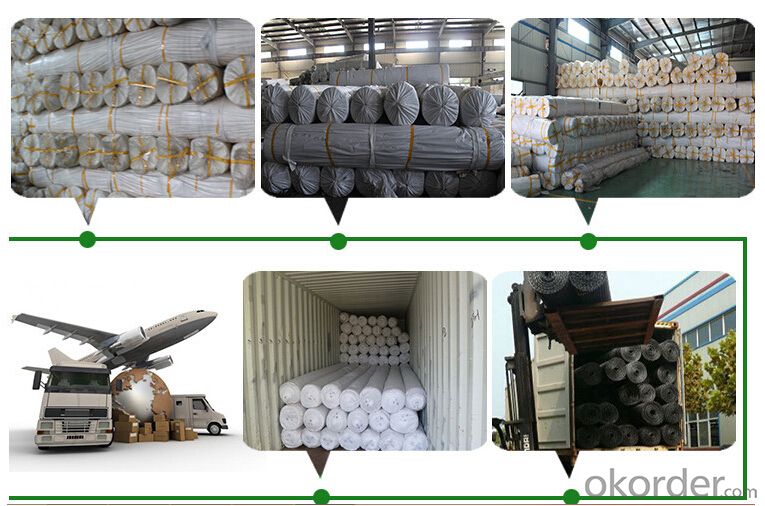
FAQ:
Q1: What is your minimum order quantity?
A:The minimum order quantity is 5000 ,but it is negotiable.
HDPE Geomembrane Price
Q2:What is your payment terms?
A: T/T,Western Union,Paypal,L/C...
HDPE Geomembrane Price
Q3:What is your delivery time?
A:Production time usually costs 2-20 days.
Waiting to cooperate with you!
- Q: What are the considerations for geotextile installation?
- Some considerations for geotextile installation include proper site preparation, ensuring the geotextile is compatible with the soil and project requirements, proper placement and anchoring techniques, and regular inspection to ensure the geotextile is functioning as intended. Additionally, factors such as weather conditions, traffic loads, and environmental considerations should also be taken into account during installation.
- Q: How do geotextiles aid in the reduction of pore water pressure?
- Geotextiles aid in the reduction of pore water pressure by providing a barrier that allows water to flow through while preventing the migration of fine particles. This allows for efficient drainage, preventing the build-up of excess pore water pressure within the soil or ground, ultimately reducing the risk of soil liquefaction or instability.
- Q: How do geotextiles contribute to the sustainability of construction projects?
- Geotextiles contribute to the sustainability of construction projects by providing various benefits such as erosion control, soil stabilization, and drainage management. These synthetic or natural fabrics are used to reinforce soil, prevent soil erosion, and retain moisture, reducing the need for excessive excavation and resource consumption. By enhancing the performance and durability of construction materials, geotextiles help extend the lifespan of structures, reducing the need for frequent repairs or replacements. Additionally, geotextiles can minimize environmental impacts by facilitating stormwater management, preventing sediment runoff, and promoting the growth of vegetation. Overall, geotextiles play a crucial role in sustainable construction practices by minimizing environmental degradation and optimizing the long-term durability and functionality of infrastructure projects.
- Q: What is the application of geotextile?
- Geotextile is mainly used for various geotechnical projects, such as water conservancy, transportation, construction, harbor, airport and military facilities, to enhance, drainage, filtration, protection and other effects, can improve the quality and service life.
- Q: Can geotextiles be used in sports field construction?
- Yes, geotextiles can be used in sports field construction. Geotextiles are often used as a separating layer between the soil and the drainage system, helping to prevent the mixing of different soil layers and promoting proper water drainage. Additionally, geotextiles can enhance the structural integrity of the field, provide reinforcement, and prevent the migration of fine particles within the soil.
- Q: How do geotextiles help with load distribution in pavement systems?
- Geotextiles provide a reinforcing and stabilizing function in pavement systems by distributing applied loads more evenly across the underlying soil, reducing stress concentrations, and preventing the formation of cracks and deformations.
- Q: How do geotextiles contribute to soil stabilization?
- Geotextiles contribute to soil stabilization by acting as a barrier that prevents soil erosion, reduces sedimentation, and improves overall soil strength. They provide reinforcement by distributing loads and preventing soil particles from moving, thus stabilizing the soil and preventing slope failures. Additionally, geotextiles promote moisture retention and drainage, enhancing the soil's stability and preventing water-induced damage.
- Q: Do geotextiles require regular maintenance?
- Yes, geotextiles do require regular maintenance to ensure their effectiveness and longevity. This includes periodic inspections, removing any accumulated debris or sediment, repairing any damage, and monitoring their performance over time. Regular maintenance helps to preserve the functionality and durability of geotextiles in various applications.
- Q: Geotextile filter layer set which quota
- Filter cloth, monofilament filter cloth, polypropylene filter cloth, nylon green monofilament
- Q: Can geotextiles be used in geotechnical engineering?
- Yes, geotextiles can be used in geotechnical engineering. Geotextiles are permeable fabrics that can be used to enhance the performance and stability of soil in various geotechnical applications such as erosion control, soil reinforcement, filtration, drainage, and separation. They are commonly used in road construction, landfills, retaining walls, embankments, and other geotechnical structures. Geotextiles provide added strength, durability, and protection to the soil, making them an essential component in geotechnical engineering projects.
Send your message to us
Nonwoven Geotextile Fabric Price,Non-woven Geotextile Price
- Loading Port:
- Wenzhou
- Payment Terms:
- TT OR LC
- Min Order Qty:
- 100 roll
- Supply Capability:
- 20000 roll/month
OKorder Service Pledge
OKorder Financial Service
Similar products
Hot products
Hot Searches
Related keywords
